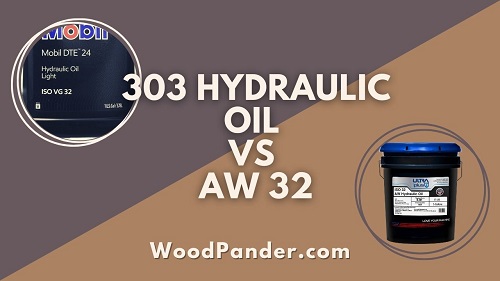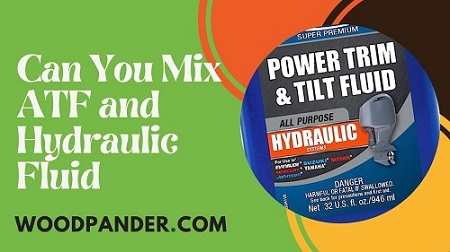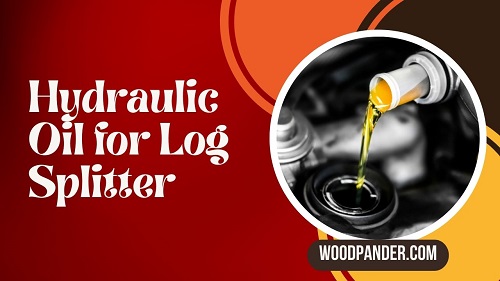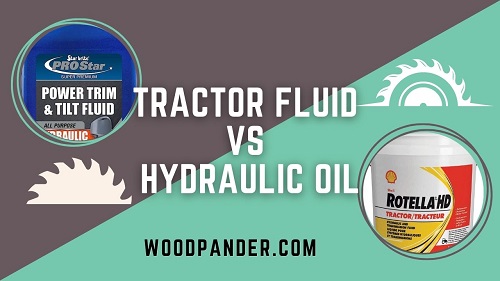Hydraulic jacks are essential tools that provide the mechanical advantage to lift heavy objects with ease. They rely on hydraulic fluid to generate the necessary force for lifting.
On the other hand, power steering fluid is specifically designed for use in automotive power steering systems. Some people wonder if power steering fluid can be used as a substitute for hydraulic jack oil.
In this article, we will explore whether using power steering fluid in a hydraulic jack is a safe and suitable option.
Understanding Power Steering Fluid
| Dexron III | ATF+4 | CHF 11S | |
|---|---|---|---|
| Compatibility | ✔️ | ✔️ | ✔️ |
| Vehicle Application | General | Chrysler | European |
| Fluid Color | Red | Red | Green |
| Viscosity Range | Medium | Medium | Medium |
| Temperature Range | -40°C to | -40°C to | -40°C to |
| 130°C | 130°C | 130°C | |
| Additives | ✔️ | ✔️ | ✔️ |
| Seal Conditioners | ✔️ | ✔️ | ❌ |
| Anti-wear Properties | ✔️ | ✔️ | ✔️ |
| Foam Resistance | ✔️ | ✔️ | ✔️ |
| Price | Moderate | Moderate | Higher |
One of our articles –Can You Use Brake Fluid in Hydraulic Jack?
Power steering fluid is a specialized lubricant designed to meet the requirements of power steering systems.
It possesses unique properties to provide efficient lubrication, corrosion protection, and heat dissipation within the power steering system.
It is formulated to work under high temperatures and pressures, ensuring smooth operation and reducing wear on the power steering components.
Hydraulic Jacks and their Functionality
| Bottle Jack | Floor Jack | Scissor Jack | |
|---|---|---|---|
| Lifting Mechanism | Hydraulic cylinder pushing a piston | Hydraulic cylinder pushing a lifting | Mechanical screw mechanism |
| Lifting Capacity | High | Medium to High | Low to Medium |
| Height Range | Limited | Wide | Limited |
| Design | Vertical | Horizontal | Compact |
| Application | Heavy-duty | General automotive | Light-duty automotive |
| Stability | Good | Excellent | Fair |
| Mobility | Portable | Less portable | Portable |
| Ease of Use | Moderate | Easy | Easy |
| Safety Features | Yes | Yes | Limited |
| Common Usage Scenarios | Automotive repairs, construction | Automotive repairs, garages | Emergency situations, roadside repairs |
| Price Range | Moderate | Moderate | Low |
One of our articles –Can You Mix ATF and Hydraulic Fluid?
Hydraulic jacks, on the other hand, utilize hydraulic oil to generate force and lift heavy objects. These jacks consist of a reservoir, a pump, a valve system, and a piston.
When the pump is operated, hydraulic oil is pushed into the cylinder, causing the piston to rise and lift the load. The hydraulic oil plays a crucial role in transmitting force and maintaining the stability and functionality of the jack.
Can Power Steering Fluid be Used for Hydraulic Jacks?
While power steering fluid and hydraulic jack oil share some similarities, they are not interchangeable. Power steering fluid is not designed to meet the demands of hydraulic jacks, which operate under different conditions.
Using power steering fluid in a hydraulic jack can lead to a range of issues, including reduced lifting capacity, leaks, and potentially even damage to the jack’s internal components.
Differences Between Power Steering Fluid and Hydraulic Jack Oil
| Feature | Power Steering Fluid | Hydraulic Jack Oil |
|---|---|---|
| Purpose | Lubricates and provides hydraulic assistance to the power steering system. | Provides hydraulic lifting force to raise heavy objects using a jack. |
| Composition | Generally, a hydraulic oil blended with additives to enhance performance. | Usually formulated as a high-viscosity hydraulic oil. |
| Viscosity | Specifically designed to have a consistent viscosity across a wide temperature range. | Typically thicker in viscosity to support heavy lifting applications. |
| Anti-Foaming Agents | Contains additives to prevent foaming, which can affect power steering performance. | May or may not have anti-foaming agents, as foaming is less critical in jack applications. |
| Heat Resistance | Must withstand the heat generated during power steering operation. | Requires good heat resistance to prevent oil degradation under heavy load and extended use. |
| Seal Compatibility | Compatible with power steering system seals and hoses. | Should not damage or deteriorate the seals and components of the hydraulic jack system. |
| System Pressure | Works at lower pressures, typically up to a few hundred pounds per square inch (psi). | Needs to handle higher pressures, often exceeding 2,000 psi in heavy-duty jacks. |
| Detergent Properties | May contain detergents to help keep the power steering system clean. | Typically lacks detergents, as the jack system doesn’t require cleaning properties. |
| Color | Often red or amber in color, but can vary depending on the manufacturer. | Usually appears as a clear or light amber liquid, but colors may vary. |
| Interchangeability | Not interchangeable with hydraulic jack oil due to different requirements and additives. | Not recommended to substitute power steering fluid as hydraulic jack oil, as it may lead to inadequate performance and potential damage. |
One of our articles –Can You Mix Different Grades Of Hydraulic Oil?
The primary difference between power steering fluid and hydraulic jack oil lies in their formulation. Hydraulic jack oil is specifically engineered to provide optimal lubrication and hydraulic performance in jack systems.
It is designed to handle higher pressures and temperatures while maintaining its viscosity and lubricating properties. Power steering fluid, on the other hand, is formulated to cater to the unique demands of power steering systems, which differ from those of hydraulic jacks.
Hydraulic Jack Oil vs Power Steering Fluid
Potential Risks and Issues
Using power steering fluid in a hydraulic jack can lead to several risks and issues. The fluid may not offer the necessary lubrication and viscosity required for the jack’s internal components, resulting in increased wear and reduced performance.
Power steering fluid may also foam under high-pressure conditions, causing erratic operation and compromising safety. Additionally, the use of power steering fluid in a hydraulic jack could void any warranty or service agreements.
Alternatives to Power Steering Fluid for Hydraulic Jacks
| Fluid Type | Pros | Cons |
|---|---|---|
| Automatic Transmission Fluid (ATF) | – Widely available and compatible with hydraulic systems | – May not provide the same level of lubrication and protection as power steering fluid |
| Hydraulic Jack Oil | – Specifically designed for hydraulic jacks | – Limited availability compared to power steering fluid |
| Hydraulic Oil | – Suitable for high-pressure hydraulic systems | – May not have the same additives as power steering fluid for optimal performance |
| Motor Oil | – Easily accessible and may work in a pinch | – Lacks specialized additives for hydraulic systems, may not provide ideal lubrication |
| Mineral Oil | – Can be used as a temporary substitute | – Not designed for hydraulic systems, may cause damage over time |
| Silicone-Based Oil | – Resistant to high temperatures | – Limited availability, may not have the same lubricating properties as power steering fluid |
| Vegetable Oil | – Environmentally friendly option | – Poor viscosity stability, may lead to reduced performance |
| Water | – Readily available and inexpensive | – Lacks lubricating properties and may cause rust or corrosion in the hydraulic system |
Instead of using power steering fluid, it is advisable to use a hydraulic jack oil specifically designed for jack systems. Hydraulic jack oil ensures optimal performance, longevity, and safety.
When selecting hydraulic jack oil, consider the manufacturer’s recommendations and specifications to ensure compatibility with your particular jack model. Using the recommended oil will help maintain the jack’s performance and prolong its lifespan.
Related Questions
Is it safe to use power steering fluid in a hydraulic jack?
Using power steering fluid in a hydraulic jack is not safe. Power steering fluid is not formulated to meet the demands of hydraulic jacks and can lead to issues such as reduced lifting capacity, leaks, and potential damage to the jack’s internal components.
What are the potential risks of using power steering fluid in a hydraulic jack?
The potential risks of using power steering fluid in a hydraulic jack include reduced lifting capacity, leaks, increased wear on internal components, erratic operation due to foaming under high pressure, and potential warranty or service agreement voidance.
Can I mix power steering fluid with hydraulic jack oil?
It is not recommended to mix power steering fluid with hydraulic jack oil. The two fluids have different formulations and are designed for specific applications.
Mixing them can compromise the performance and functionality of both the power steering system and the hydraulic jack.
Are there any alternatives to power steering fluid for hydraulic jacks?
Yes, there are alternatives to power steering fluid for hydraulic jacks. It is advisable to use hydraulic jack oil specifically designed for jack systems. This ensures optimal performance, longevity, and safety of the hydraulic jack.
How often should I change the hydraulic jack oil?
The frequency of changing hydraulic jack oil depends on several factors, including the manufacturer’s recommendations and the frequency and intensity of use.
It is generally recommended to follow the manufacturer’s guidelines or consult the user manual for specific instructions regarding oil change intervals. Regular maintenance and inspection of the hydraulic jack will help determine the appropriate time for an oil change.
Conclusion
Using power steering fluid in a hydraulic jack is not recommended.
While both fluids share some similarities, they are designed for different purposes and operate under different conditions.
Power steering fluid may not provide the necessary lubrication, viscosity, and performance required by hydraulic jacks. It is best to use hydraulic jack oil recommended by the manufacturer to ensure optimal performance, safety, and longevity of your hydraulic jack.








